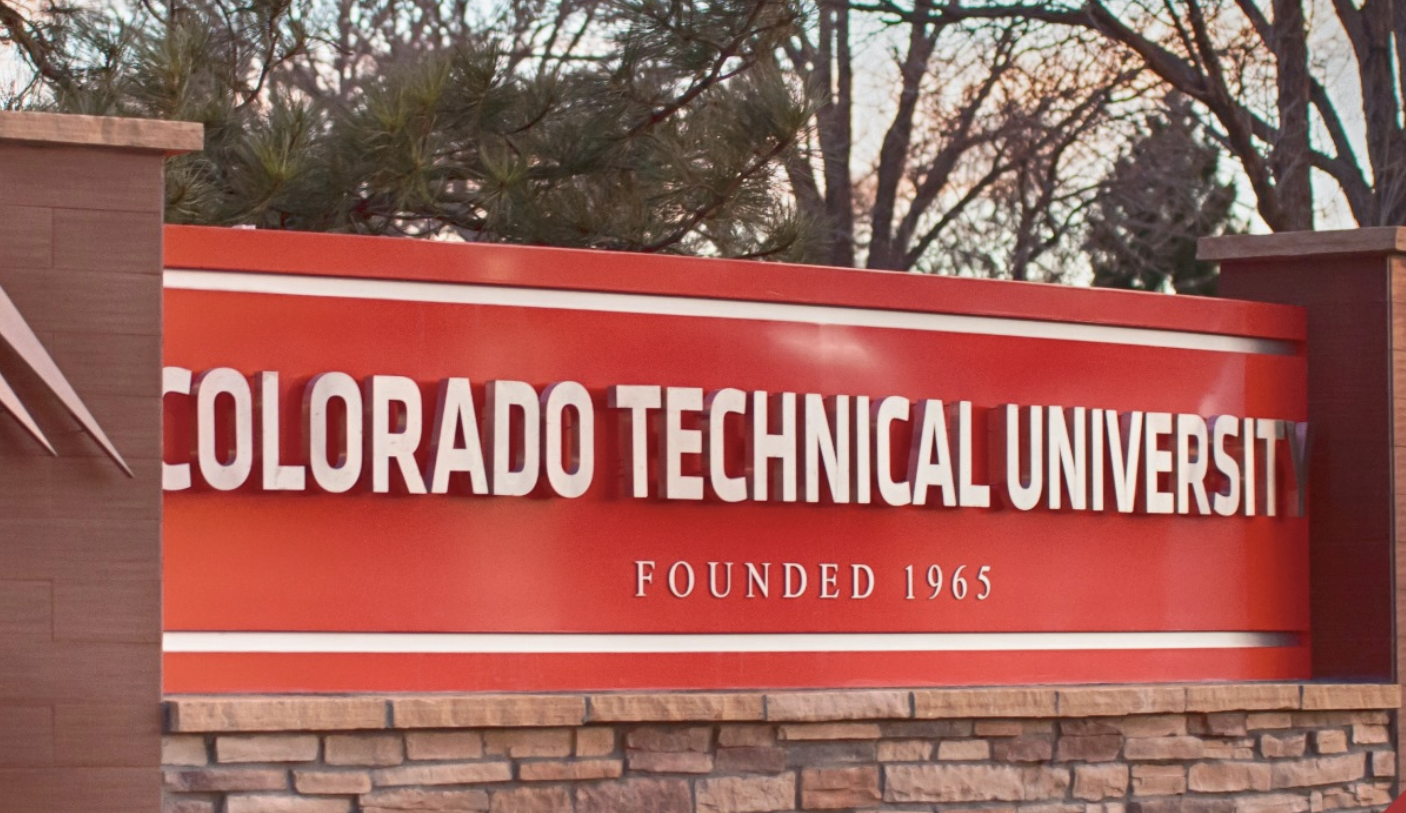
Colorado Technical University/Facebook

Audio By Carbonatix
For years, Colorado Technical University has “purposely evaded strict federal requirements” and failed to provide students with the required number of learning hours needed to receive financial aid, a whistleblower claims – defrauding the government out of hundreds of millions of dollars in the process.
The anonymous CTU employee came forward in a lawsuit filed in May and green-lit on January 4 by Senior U.S. District Court Judge R. Brooke Jackson.
The lawsuit accuses CTU of failing to provide “anywhere near the educational content required” to receive federal financial aid. “Instead, they have shortchanged hundreds of thousands of students by designing courses with fewer than 20 hours of educational content…and delivering those courses through [CTU’s] ‘Intellipath’ proprietary online-learning platform,” the suit says. “With Intellipath, even if students complete every assignment in a course, they receive nowhere near the amount of educational content required for federal aid.”
In some cases, more than 100 learning hours were said to have been completed using Intellipath when the number was actually under ten, the suit claims, so that CTU was getting more than $350 million in federal financial aid for work students weren’t doing.
“This lawsuit aims to recoup the hundreds of millions of dollars CTU has allegedly improperly extracted from the federal government and to force CTU to ensure it is providing its students with the amount of educational content required by federal financial aid programs,” explains attorney Marlene Koury, of the New York-based law firm Constantine Cannon, which specializes in whistleblower cases.
“CTU leadership should be held accountable for, among other things, allegedly designing a learning platform, Intellipath, for the specific purpose of carrying out the credit hour fraud scheme alleged in the complaint, and for allegedly engaging in a cove up scheme to conceal the fraud from the government,” she adds.
It’s important to hold CTU accountable in this case because the private, for-profit college – located in Colorado Springs and Aurora – has not only duped the federal government, but students as well, Koury says, adding that the school “allegedly failed to provide tens of thousands of students with the education the students signed up for and the federal government paid CTU to provide.”
The whistleblower’s lawsuit claims that CTU “intentionally designed Intellipath to further minimize the hours students spend to complete CTU and AIU courses.” One of the ways this was accomplished was through Intellipath’s “Determine Knowledge” feature, which automatically skips students through “significant portions of course work by having them pass rudimentary diagnostic tests,” the suit says. “Defendants have employed various other machinations with Intellipath similarly causing students to bypass lessons as they moved through their courses.”
In 2011, the Department of Education outlined the federal definition and requirements of a “credit hour.” For each credit hour, a school must provide educational content that equals at least one hour of classroom instruction and two hours of out-of-class work each week for a minimum of ten weeks, or the “equivalent number of learning hours over a different period of time,” the whistleblower’s suit notes. “Thus, for a 4.5-credit hour course, a school must provide at least 135 learning hours of educational content. If it does not provide this minimum content, the school does not qualify to receive financial aid.”
In CTU’s case, instead of reporting accurate numbers, the school “regularly ascribes an inflated eighty to 100 learning hours or more to Intellipath content to support its claimed compliance with federal credit hour regulations,” according to the suit. “CTU draws these inflated numbers from a handful of cherry-picked outlier students with abnormally high hours, often because they have made multiple attempts at the same course (which Intellipath treats as cumulative).” The school then reportedly presents those students as representative of the broader class population for its learning-hour calculations, the suit says.
“Knowing they do not provide anywhere near the content required under federal credit hour regulations, [CTU] inflated the number of learning hours recorded on Intellipath to falsify their compliance with federal credit hour requirements and remain eligible for [federal] funding,” the suit charges. “If DOE knew the truth, it would not have paid [CTU] any [federal] aid for these students. This would have dramatically reduced the federal aid paid to CTU…and rendered most of their students ineligible for Pell Grants and Direct Loans altogether. “
Before Judge Jackson ruled that the case could move forward, CTU and its parent company, Perdoceo, argued that under federal law, whistleblowers are only allowed to bring claims forward if the same allegations have not already been made publicly. In its motion to dismiss the whistleblower’s lawsuit, CTU argued that it “recycles allegations of a supposed fraudulent scheme that the Government has been investigating on an industry-wide basis for years.”
In his decision, Jackson noted that the whistleblower’s claims about Intellipath and its alleged failures had not been reported.
“There is no question…Perdoceo and other similar institutions have been on the government’s radar for years,” Jackson determined. “However…specific claims concerning misrepresentation of credit hours and the use of Intellipath…to defraud students and the government, there is very little to be found in government publications or news articles.”
While holding CTU accountable is the main goal, Koury says another important takeaway from this case is viewing whistleblowers as crucial components in the fight to root out fraud that might not otherwise come to light.
“The whistleblower here attempted to remedy the alleged fraud internally,” Koury tells Westword. “When they were rebuffed, they brought the allegations forward to stop the alleged fraud from continuing.”